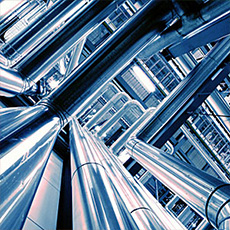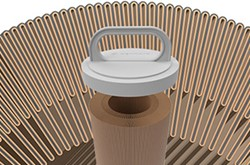- Home
- Applications
- Chemical Ethylene
Ethylene Quench Water
Fundamental building block chemical used in the production chain of polyethylene, PVC, styrene, ethylene glycol, vinyl acetate, linear ∂-olefins and a host of other chemical products. Eliminate hydrocarbons in Quench Water system, minimize fouling, provide greater system reliability, lower maintenance, lower energy costs.
- Quench water contains emulsified heavy aromatic hydrocarbon (SG = 0.975)
- Cracked hydrocarbons are extremely reactive. Polymerization leads to fouling of quench system, exchangers, dilution steam generator
- Fouling reduces plant profitability and on-stream reliability

Related technologies
HYDROCARBON RECOVERY TECHNOLOGY - HRT
HRT provides petroleum producers, refiners and gas processors dramatically improved solids control and hydrocarbon recovery from process water streams. Applications for HRT include: Produced Water Management, Oil Removal from Waste Water, and SRU Optimization.
EXTRACTIVE SEPARATIONS - POLAREX
Polarex, US Patent 8425663, an extractive separations technology provides gas processors, chemical manufacturers, and refiners dramatically improved separation of entrained and dissolved contaminants. It is designed to replace conventional water wash and solvent scrubbing towers.
Compared to conventional cartridge filters, COMPAX saves you money by lowering operating costs and reducing disposal costs. When comparing filters with the same efficiencies or Beta ratings, nothing outperforms the cost/performance value achieved with COMPAX.
LiquiSep technology has been implemented specifically to help separate emulsions that are not separable by conventional coalescers. Conventional coalescers are unable to provide the degree clarity associated with LiquiSep technology due to the inability to capture and remove the most penetrating droplets that cause carry-over. LiquiSep can separate these dispersed and emulsified droplets from the hydrocarbon to practically non-detectable levels.
The Apex element is specifically intended to keep annular velocities constant across the entire height of the element. This is accomplished by introducing a gentle taper in the element, so that the annular space on the outside of the element gradually increased from the bottom to top, keeping pace with the external fluid flow as it exited the element.
V-MAX is a coreless filter that flows from the inside-to-outside like a bag filter but V-MAX technology can offer the same online life as a bag filter in a vessel that is roughly half the diameter. This is possible since the V-MAX design offers up to ten times the available filtration media in the same element envelope.








